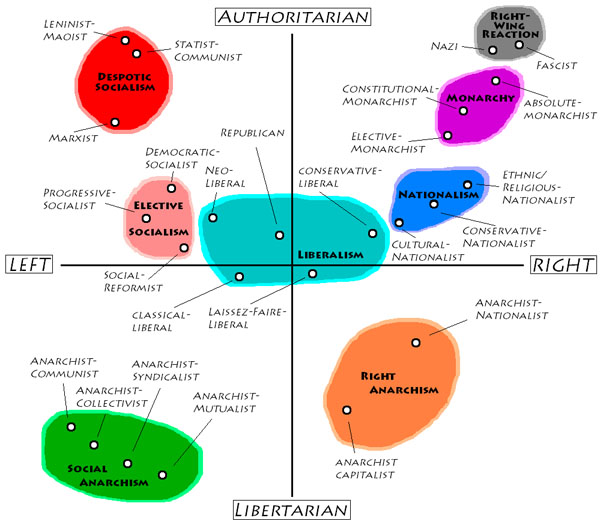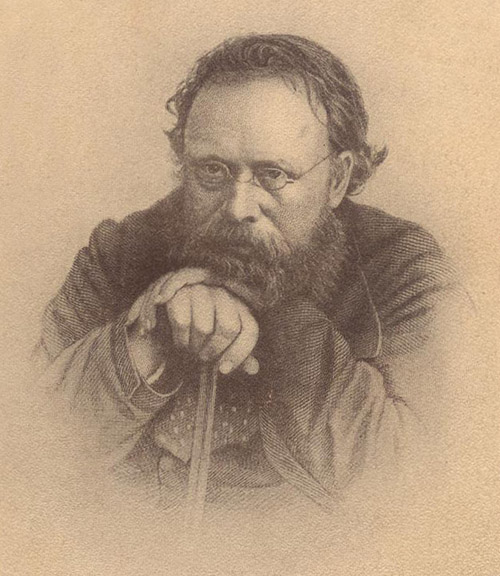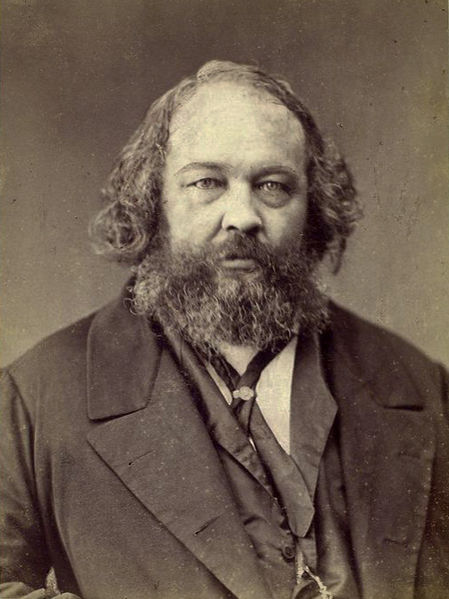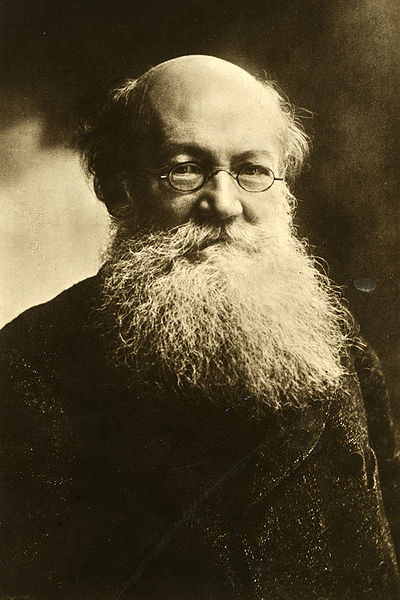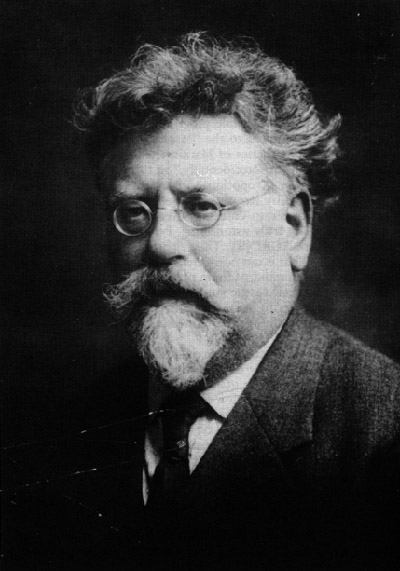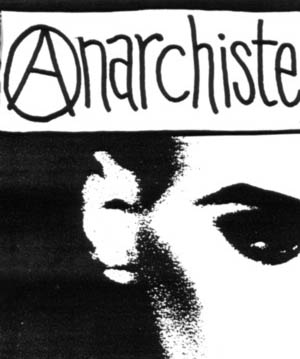|
|||||||||||||
|
Known as Social Anarchism A Unique Approach to By Punkerslut
Introduction to the Philosophy of Social Anarchism
Anarchism is a philosophy that is based on rejecting official positions and absolutes about human, social organization. Following from this, there are naturally many forms and styles of Anarchism. Each form of anarchy wants to abolish the state and to make every person their own self-ruling master. But there are individualist and capitalist forms, as well as some based on communism and workers' self-management. Social Anarchism is a broad region of social and economic thought that encompasses several different styles. The phrase Social is attached to the title, because it indicates an anti-state ideal that wants to replace the world with a more social humanity. The abolishment of government isn't going to mean that people will interact less, that they'll become completely independent and self-reliant for absolutely everything. The end of governors and rulers is going to mean people working together, and forming cooperative organizations to satisfy their needs in a voluntary and collective fashion. By mutual and reciprocal relationships, the people will be able to provide community defense, free education, scientific development, and all of their own needs. Our social and cooperative instincts will take over any responsibilities that the state claimed to be watching over. Social Anarchism, then, includes many philosophies; as long as they advocate overthrowing the government, and replacing it with a voluntary, social organization. This ethic of social and cooperative organizing tends to come with the Anti-Capitalist idea.
Anarcho-Mutualism, or "Mutualist Anarchism"
The first person to call themself an "Anarchist" was the French philosopher Pierre-Joseph Proudhon. [*1] And, only after some years, he adopted the title "Federalist" in 1848. [*2] However, Proudhon's philosophy of Mutualism still receives some interest and attention in alternative, economic circles. In the mainstream, it is entirely forgotten. Mutualism as an economic theory -- it is the new form that Proudhon was going to use to replace the functions of the state. Private property was maintained, and you were entirely allowed to own as many castles as you wanted. The market economy, too, was kept free and unregulated. [*3] But, there was a heavy restriction placed on this ownership. There was a central bank, that set prices, so that no producer or manufacturer could exploit merchants or laborers. [*4] This is where the Mutual in Mutualism comes from. No longer could an employer pay their laborers subsistence wages, since all of the currency was controlled by a bank which guaranteed mutual, economic relationships. This is how Capitalism and private property can be curbed in their evils: profit is abolished, and while people can freely enter into contracts, the central bank sets prices. Mutualism was the first theory of Social Anarchism, because it developed a plan for how people can live without government. It provided a way to maintain the benefits of civilized society, while living without authority, domination, or exploitation. But there are still proprietors and the dispossessed. The decisions on how land is used is still up to those who have the property rights to it. There were certainly many faults with Anarcho-Mutualism, and this is why many Anarchist Revolutions would occur under different banners. But, the idea and the form of Anarcho-Mutualism is essential to anyone who wants to truly understand Anarchism.
Anarcho-Collectivism, or "Collectivist Anarchism"
The father of Anarcho-Collectivism, Mikhail Bakunin, had met Pierre-Joseph Proudhon in Dresden, Germany, in 1844. There they exchanged political ideas, while Bakunin became educated on economics. These two Anarchists also had some provocative conversations with a person whose name is synonymous with Statism: Karl Marx. [*5] Both Marx and Bakunin had spent years opposing each other's ideas at the First International Workingmen's Association. Marx responded to the dissent of opinion: Bakunin and his followers were expelled in 1872. [*6] Collectivism has a more radical approach to economic organization than Mutualism. In the Collectivist economy, every worker is also the owner and manager of their tools. Factories are collectively and managed operated by the assembly line workers, just as the mines are organized and regulated by the miners themselves. It is not enough to have a central bank that guarantees fair prices and an end to exploitation, as Mutualism suggests. The workers themselves must be in control of the industries and the businesses. This is the only way to guarantee that there will be work enough for all, that the land is managed for the interest of the people, and that no longer can there be poverty generated by monopoly. The only way to guarantee economic independence is for everyone to be their own master of their tools. Otherwise, those who possess will rent their tools to others, on the condition that they can extract a profit out of them -- on the condition that it is only to rent, and that the owner can withdraw their property when "risk" comes about, sending the worker into unemployment and poverty. Real independence, within a highly socialized civilization, means everyone having equal access to our productive forces. It is the only way to prevent exploitation or economic domination. James Guillaume was one of the early followers of Bakunin, who had also contributed significant ideas about Collectivist theory. In his essay Ideas on Social Organization, published 1876, he wrote, "...it is evident that collective labor is imposed by the very nature of the work and, since the tools of labor are no longer simple individual tools but machines that must be tended by many workers, the machines must also be collectively owned..." [*7]
Anarcho-Communism, or "Communist Anarchism"
There have always been communal forms of human organization, going back thousands of years, such as the Essene people. [*8] The idea of Communism comes from Karl Marx, the person to coin the phrase "From each according to his ability, to each according to his need." [*9] But Marx's idea of communal living required a controlling, coercive, and top-down government. Communism, according to the Marxist ideas, could only be accomplished by an unquestionable authority governing every aspect of society. Some of the earliest advocates of Anarchist-Communism were admirers and friends of Bakunin at the First International. Such individuals included Errico Malatesta, Carlo Cafiero, Emilio Covelli, and Andrea Costa. [*10] The most significant figures of this train of thought, though, include Emma Goldman, as well as Peter Kropotkin, for his contributions in the Conquest of Bread and Fields, Factories and Workshops. Unlike other strains of Anarchism, Anarcho-Communism has been the driving force of revolutions that have abolished government. In Catalonia, the ideas of Libertarian Communism were tried out on a massive scale. [*11] Anarcho-Capitalism and Anarcho-Individualism can only call themselves literary and social movements. They have not been able to lead the people in overthrowing the state and creating anarchy. The economic organization of the Communist model is more simplified than Collectivism. Instead of wages being distributed for contribution, everyone has an equal right to every job and to its productions. The products of labor are not owned directly by the laborer, but by the community. Arguments against such a theory suggest that this will lead to lack of ambition -- that geniuses would choose mopping floors because it was easier than developing Calculus-based Physics, and people might decide to hoard or waste their commodities. Some Social Anarchists regard it as the ultimate destination of humanity, while other Social Anarchists consider it unrealistic in interpreting human nature.
Anarcho-Syndicalism, or "Syndicalist Anarchism"
Within the ideals of Anarcho-Collectivism and Anarcho-Communism, interesting models are set up for dealing with peoples' social needs in the new world. However, there is no real unified opinion on achieving that world. Some Anarchists had adopted insurrectionary revolution as the best means, organizing the people in arms to overthrow the state and capitalism violently. Such thinkers include Johann Most, the advocate of "propaganda of the deed." Peter Kropotkin was more optimistic, believing that people would spontaneously form the new society when the old world was suffering a crisis. [*12] Anarcho-Syndicalism was developed as a method and a tool of revolution. According to the philosophy of Anarchism, authority is an inherent evil. The authority of economy, the Capitalist class, create poverty and force the many to work for miserable pay. If there is going to be a revolution, that creates a world organized from the bottom to the top, the revolution itself must demonstrate these characters. Our Anarchist Revolution must be organized by the people themselves, those who are going to be improved by the abolishment of Capitalism and the state. By preparing the workers for a General Strike, that pulls all the energy and power out of the structure of authority, we are preparing the people themselves to overthrow government and privilege. Anarcho-Syndicalism is neither Collectivist nor Communist. It is a form for resisting Capitalism and the state. When there is no longer any rule or law, there will be only anarchy. The people, organized into unions and federations of unions, will be in a situation where they can start managing society immediately. They have possession of the tools of industry, and the people are already organized according to their profession and place of work. The new world can start producing and feeding the people without missing a beat. And, the new, reconstruction of society based on Socialism can start: councils can be formed for road plans, construction of housing, where to dig new mines or place new buildings. Revolutionary Syndicalism is the last, major development in Social Anarchism. It considers every person as a worker, since everyone needs to labor to live. And by understanding people for their needs, how they live and rely on each other for trade and labor, we can develop the most social system -- we can make the world that most sufficiently defends and advances the interests of the individual.
Similarities, Differences
All anarchist philosophy develops with the individual as having their own interests and their own goals -- important to themself, in a way that may not always reach other people. But in human society, we need each other to live, and existence outside of this arrangement would be unbearable. Social Anarchism is an attempt to create a harmony between people, where everyone can still benefit from their relationship with each other -- without anyone's individual interests being compromised or threatened. This was the intention of Pierre-Joseph Proudhon in creating Anarcho-Mutualism, just as it was the intention of Rudolf Rocker in outlining Anarcho-Syndicalism. Just as we are always evolving as a species, we are always evolving as a society. And the best means and methods for approaching social justice will have to change, too, if we wish to succeed. Perhaps not any one of these theories alone will bring us to the Social Revolution -- but they each have something valuable to offer those societies that are fighting for freedom.
Punkerslut, Resources *1. "Anarchism", BBC Radio 4 program, In Our Time, Thursday 7 December 2006. Hosted by Melvyn Bragg of the BBC, with John Keane, Professor of Politics at University of Westminster, Ruth Kinna, Senior Lecturer in Politics at Loughborough University, and Peter Marshall, philosopher and historian.
|

